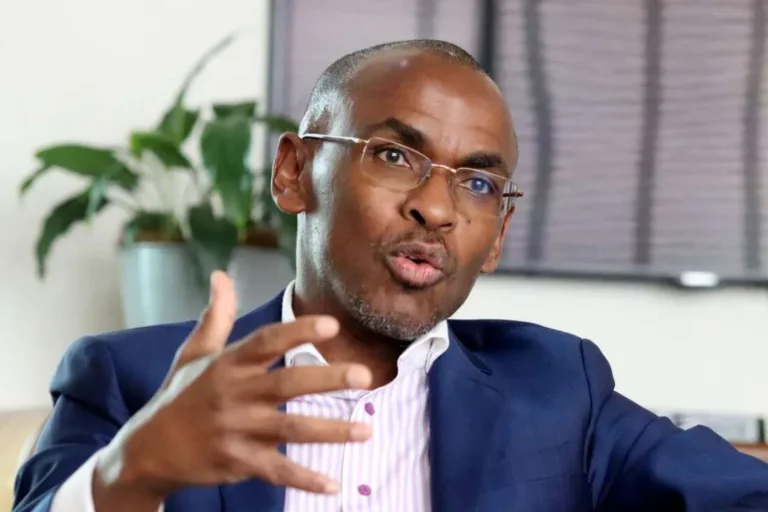Safaricom celebrated its 24th birthday last week with various promotions and giveaways just to say thank you to its loyal customers. As part of the celebrations, Peter Ndegwa had an interview with Jeff Koinange on the JKL live where he discussed various matters including Mpesa, data security, innovation among others.
M-Pesa is arguably the Safaricom’s biggest earner and since it was launched it has changed the lives of many Kenyans for the better due to the convenience that it brings when transferring funds. In the past, people had to rely on modes such as money orders and cheques so as to receive payments, methods which were not timely.
During the interview, Peter Ndegwa shared that there was a time when Mpesa had hit some regulatory headwinds and the management at the time had to get creative other the product would not have seen the light of day. The Safaricom CEO at the time, Michael Joseph went to see the then Finance Minister John Michuki in a bid to convince him that their product could actually work.
Michael Joseph managed to convince Michuki to let him enroll his farm manager on Mpesa after which, he was able to pay his workers. It was at this point that Michuki became sold on the product and this helped significantly in ensuring that they managed to get the license to operate.
From this period, Mpesa has grown in leaps and bounds to a point where it has become a mainstay in the country’s financial ecosystem with 33 Million customers using Mpesa to transact. With 4,000 transactions being performed every second and daily transactions hitting $750 Billion which is mind boggling anyway you look at it.
With the growth of Mpesa, the telco noticed that there were many transactions which were being cancelled due to insufficient funds. This led to the launch of Fuliza a form of overdraft to help its customers pay for goods and services even during times when they were low on funds. In 2023, Ksh. 2.3 Billion was borrowed on a daily basis with the value of disbursements hitting Ksh. 834 Billion.
Peter Ndegwa shared that the widespread use of Mpesa has led to increased cases of fraud whereby fraudsters have been targeting users via social engineering. This is where a fraudster manages to get your number and calls pretending to be a Safaricom customer care agent. After which they try to get you to reveal your PIN among other details which enable them to perform a SIM Swap leading to loss of money from your Mpesa wallet.
The CEO intimated that they are countering this by educating the public that they should not share their information like passwords on the phone because their representatives are not likely to ask for such. He also indicated that their customer care representatives only call from the official Safaricom customer care number that 0722 000000.
Safaricom is also utilizing AI and Big Data to be able to analyze and triangulate where a majority of the fraud is emanating from with a good number being from Mulot. As such, they have put a system in place which is able to identify and stop suspicious transactions which appear to be initiated from such places. For example, a Sim Swap which is being carried out in say Sarit Center, but the system is able to identify that the actual sim card is in a place such as Mombasa. In such an instance the system would automatically reject the swap and flag it as fraudulent all without any human intervention. This is akin to what is used by Visa, the card payment provider which has proved to be quite effective in reducing cases of fraud and data breaches.
The telco was also recently awarded with a Privacy Information Management System certification by the British Standards Institute. The certification helps organizations identify potential risks related to privacy breaches and outlines measures to mitigate these risks effectively. This means that moving forward Safaricom is better placed to protect its customer’s data which is a win for everyone.

